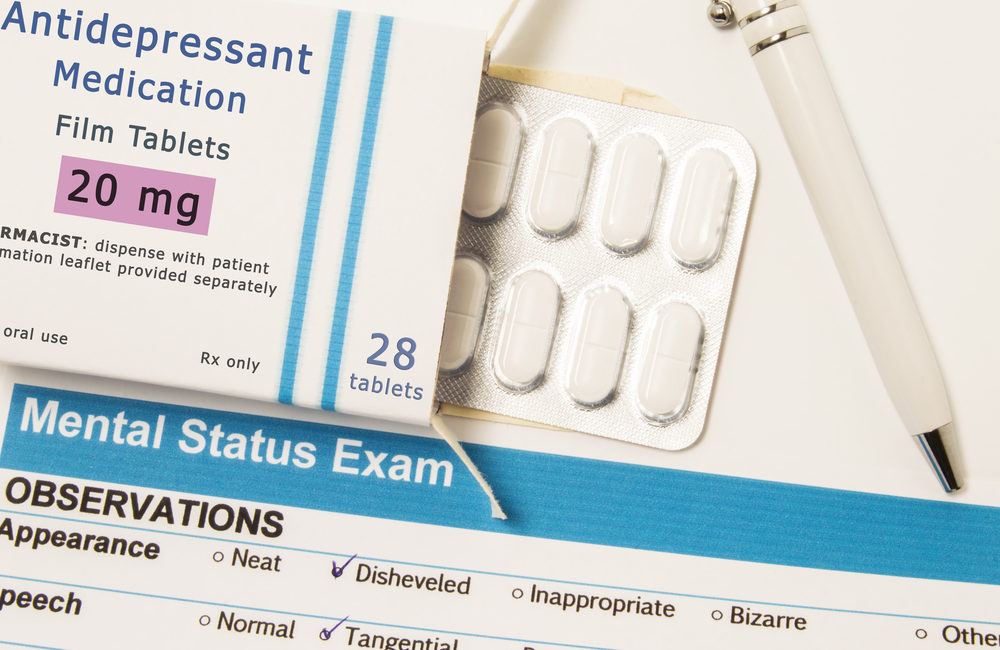The U.S. Food and Drug Administration (FDA) has announced that Aurobindo Pharma USA, Inc. is voluntarily recalling a single lot of antidepressant medication, Mirtazapine. According to the FDA notice, the recall is due to a dangerous labeling error. Patients could take a higher dose of the antidepressant than what is prescribed. Here is what we know about this medication recall.
FDA Recall Alert Information
In December 2019, the FDA announced the Mirtazapine recall due to a serious labeling error. The report states that one lot of the medication has a label that is inconsistent with the dosage strength of the pills. The bottle is labeled “Mirtazapine 7.5 mg,” but the bottle may contain 15 mg tablets.
The affected lot of Mirtazapine is distributed in 500-count bottles to pharmacies and healthcare providers. The medication is then packaged in smaller bottles for consumers. The medication may be labeled “Mirtazapine” or brand name “Remeron.”
Aurobindo is working to notify all distributors and healthcare providers about the recall. The company is arranging for return of all products in the recall. Healthcare providers and consumers who have Mirtazapine should check their medication and label. Consumers can identify the affected medication by the following:
- Mirtazapine Tablets 7.5 mg
- Mirtazapine Tablets 15 mg
- Lot number – 03119002A3
- Expiration date – 03/2022
What Consumers Should Know About the Mirtazapine Recall
Like most all medications, there are possible side effects when taking Mirtazapine. However, taking more than is expected or is prescribed can be dangerous. Taking a higher dose than expected can cause side effects including:
- Sedation
- Agitation
- Increased reflexes
- Tremors
- Sweating
- Dilated pupils
- Gastrointestinal distress
- Nausea
- Constipation
The most serious side effect is a high level of sedation. The FDA notes,
“Unexpected levels of sedation in particular can contribute to falls in the elderly or motor vehicle accidents in adults.”
Consumers who have recalled Mirtazapine should contact their healthcare provider to arrange an alternative prescription. Consumers should also tell their doctor about any side effects they experience while taking the medication.
Anyone with questions, or who would like to file an adverse event report, can do so by contacting Aurobindo Pharma USA at 1-866-850-2876.
What is Mirtazapine?
Mirtazapine is an antidepressant prescribed to patients with major depressive disorders. The medication works by altering communication between the central nervous system (CNS) and nerve cells. This alteration helps restore chemical balance in the brain.
Mirtazapine is a class of medication called tetracyclic antidepressants. It is sold under the name Mirtazapine, Remeron and Remeron Soltab. Mirtazapine is a strong medication and there are numerous contraindications and possible side effects.
Contraindications
Contraindication means that a medication may not be appropriate for patients taking certain other medications. Using contraindicated medications together can increase the risk of side effects. It can also be dangerous and even deadly. Mirtazapine has a lengthy list of medications that are contraindicated, including:
- Alprazolam (Xanax)
- Brompheniramine (Dimetapp)
- Citalopram (Celexa)
- Dextromethorphan (Robitussin)
- Duloxetine (Cymbalta)
- Fluoxetine (Prozac)
- Hydrocodone
- Lorazepam (Ativan)
- Meperidine (Demerol)
- Phenelzine (Nardil)
- Ondansetron (Zofran)
- Paroxetine (Paxil)
- Sertraline (Zoloft)
- John’s Wort
- Tramadol
- Warfarin
If you take any of these medications and have a prescription for Mirtazapine, you and your doctor should make sure that the benefits outweigh the potential risks. Some contraindicated medications increase the risk of side effects, while others increase the severity. Also, some contraindications can cause certain medications to not work as they should.
Medical Conditions that Affect Mirtazapine
Certain medical conditions may also impact the safety and effectiveness of Mirtazapine. These conditions include:
- Circulation problems
- Dehydration
- Heart disease
- History of stroke
- Bipolar disorder
- Glaucoma
- Seizures
- Kidney disease
- Liver disease
Important Reminders from the FDA Recall Alert
All of this information about Mirtazapine is to highlight the potential danger of taking a higher dose than is necessary or appropriate for your health. The FDA recall alert clearly states that there is a high risk of danger with taking too much of the medication. As you can see from the list of side effects, contraindications and medical conditions, Mirtazapine is a medication that should be used with the utmost care and supervision.
Here are some important things to remember:
- You should only take the minimum dose needed to treat your symptoms.
- Always discuss side effects with your healthcare provider.
- Never stop taking your medication without talking to your doctor.
- If you have or develop any new medical conditions, tell your doctor right away.
- Never take a medication that is subject to a recall unless your doctor specifically tells you to for medical reasons.
If you currently take Mirtazapine, or your doctor is considering prescribing it, take these factors into consideration. Also, remember to stay up-to-date on the status of medication recalls that affect you.
You can count on Drug and Device Watch for updates and information as soon as possible. Furthermore, you can always contact us if you have questions about a medication recall or concerns about adverse events that you have experienced. You can contact by calling 1-888-458-6825, or by emailing us through our website.
Sources:
- https://www.ajc.com/lifestyles/health/depression-drug-recalled-over-mislabeled-strength-pills/oZ8XmB6klBhIpXqSH0yrLL/
- https://www.fda.gov/safety/recalls-market-withdrawals-safety-alerts/aurobindo-pharma-usa-inc-issues-voluntary-nationwide-recall-mirtazapine-tablets-lot-number
- https://www.mayoclinic.org/drugs-supplements/mirtazapine-oral-route/before-using/drg-20067334
